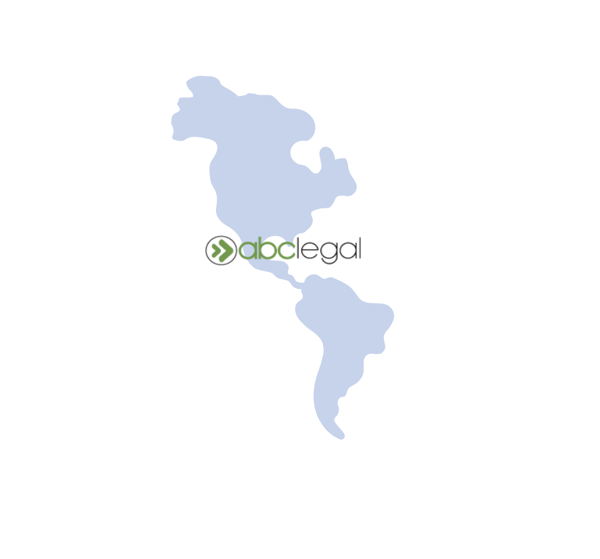This is the third article of our knowledge base series addressing international service of process. This time we focus on the Inter-American Convention and its limited impact on service of process.
In addition to the Hague Service Convention, The United States is a signatory to the Inter-American Convention on Letters Rogatory, and an additional section called the Additional Protocol to the Inter-American Convention on Letters Rogatory (“Inter-American Convention, or IACAP”). While these conventions have their own rules and forms, they apply to international service of process.
Which countries are bound by the IACAP?
According to the U.S. Department of State, the countries in force of the Inter-American Convention currently include: Argentina, Brazil, Chile, Columbia, Ecuador, Guatemala, Mexico, Panama, Paraguay, Peru, United States, Uruguay and Venezuela.
What is the purpose and process of the IACAP?
Designed to simplify the judicial process between countries, the Inter-American Convention on Letters Rogatory and the Additional Protocol (IACAP) are interpreted by the United States as limited agreements covering service of process.
As seen through the U.S. Judicial system, countries must be signatories to the Hague Service Convention and to IACAP in order for a treaty relationship to fully exist. Replacing the traditional letters rogatory process, the IACAP provides a mechanism for service of documents by a foreign central authority. Under the IACAP, the Department of Justice is the designated U.S. Central Authority. Requests from the United States are transmitted via ABC Legal as private contractor to execute the service functions of the U.S. Central Authority on behalf of the Department of Justice.
What is the scope of the Inter-American Convention and how does it differ from the Hague Service Convention?
The IACAP limits its application to civil and commercial matters, as well as permits countries that choose to apply it to criminal and administrative matters.
The IACAP, unlike the Hague Service Convention, requires the Mandatory Convention Form to hold the seal and signature of the judicial authority of the country of origin as well as the signature and stamp of the Central Authority. While this form isn’t required to be translated into the language of the foreign country, documents served such as the summons and complaint must be translated into the appropriate foreign language.
For more details please visit the U.S. Department of State-Bureau of Consular Affairs.
Which one applies - the Hague Convention or IACAP?
This will depend on the county where the individual being served holds residency, and if that country has signed one of these treaties. Some countries could have signed both, some just one, and others perhaps none. If the country in which you seek to serve has not signed either treaty, Section 4(f)(2)(C) of the Federal Rules of Civil Procedures will cover this circumstance.
There can be further limitations or reservations to which particular treaty is required. Please seek legal counsel for specifics to your individual case and circumstances. Also, the U.S. Department of Justice offers additional resources here.
How can ABC Legal help servicing legal documents according to the Inter-American Convention?
 ABC Legal is the sole contractor authorized by the DOJ to provide incoming service from abroad directed at private individuals or companies located in the United States. For the purposes of legal service of documents, ABC Legal receives and processes both incoming and outgoing requests for service pursuant to the Inter-American Convention. For incoming requests, ABC Legal receives the request from the foreign Central Authority, serves the documents on the individual, and returns the recognized Certificate of Service to the foreign Central Authority. Outgoing requests for service should be sent to ABC Legal by the party in the United States requesting service.
ABC Legal is the sole contractor authorized by the DOJ to provide incoming service from abroad directed at private individuals or companies located in the United States. For the purposes of legal service of documents, ABC Legal receives and processes both incoming and outgoing requests for service pursuant to the Inter-American Convention. For incoming requests, ABC Legal receives the request from the foreign Central Authority, serves the documents on the individual, and returns the recognized Certificate of Service to the foreign Central Authority. Outgoing requests for service should be sent to ABC Legal by the party in the United States requesting service.
ABC Legal will then transmit the request to the foreign Central Authority for service. Once the individual is served, the foreign Central Authority will transmit the Certificate of Service back to ABC Legal.
Requests for service pursuant to the Inter-American Convention must adhere to all translation requirements, include the Mandatory Form, and be sent in triplicate. There is no additional government imposed fee for requests sent pursuant to the Inter-American Convention.
Further guidance is available through the U.S. Department of Justice’s Office of International Judicial Assistance (OIJA) website, specifically in the OIJA Guidance on Service Abroad in U.S. Litigation.
How do I initiate an international service of process request?
You can start your international service of process request now by visiting ABC Legal’s International Service Page.
Where can I learn more about other regulations impacting international service of process?
This is the third part of our knowledge base series addressing international service of process.
- In part one of this series we highlighted that the United States Department of Justice (DOJ) just awarded ABC Legal Services the contract to exclusively serve process and extrajudicial documents that come into the United States from foreign countries.
- In part two we answer questions around the Hague Service Convention and its impact on international service of process.
- Part three addresses the impact of the Inter-American Convention (IACAP) and its limited impact on International Service of Process between countries of the Americas.
- In part four we cover letters rogatory or letters of request.
About ABC Legal Services
ABC Legal is the nation’s leading service of process and court filing company and is the official process server to the U.S. Department of Justice. Docketly is a subsidiary of ABC Legal, providing appearance counsel on a digital, custom-built platform that smoothly integrates with our applications and services. ABC Legal’s applications are cloud-based and compatible for use on desktop, browser and smartphones. Our solutions and digital approach ensure process server partners, law firm customers and their clients save valuable time and resources when serving legal notices safely and with maximum compliance, control and transparency. ABC Legal is based in Seattle, WA, with more than 2,000 process servers throughout the U.S., as well as internationally in more than 75 countries. To learn more about ABC Legal, our solutions and subsidiary company Docketly visit www.abclegal.com.
Written by
ABC Legal ServicesService made simple—down the road and across the country. Join the 50,000+ professionals who trust ABC Legal for service of process.
Recent Posts
Subscribe to email updates
Popular posts
Learn More

International Child Custody Laws
.jpg?width=1254&height=836&name=iStock-539206772%20(1).jpg)
International Service of Process: The Supreme Court Weighs In

Letters Rogatory for International Service of Process

ABC Legal: Your Sole Provider for International Service








